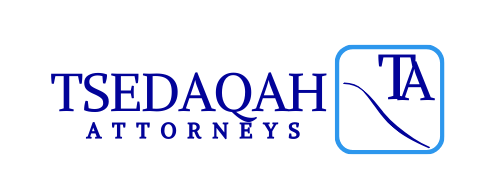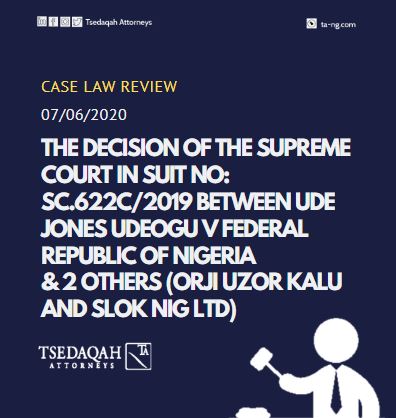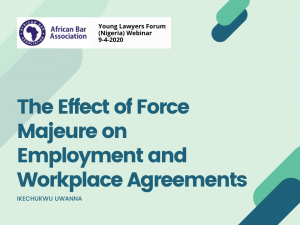INTRODUCTION/THE ISSUE
Since the decision of the Supreme Court in the case of Ude Jones Udeogu V Federal Republic of Nigeria & 2 Others, which had the effect of setting free Ude Jones Udeogu, at least, pending another successful proof of the criminal charges against him and conviction, there has been a debate amongst many Nigerians about the propriety of that decision. It should also be noted that this decision set the legal basis, upon which Orji Uzor Kalu (a former Governor of Abia State) and his company Slok Nig Ltd applied to be set free, pending another successful proof of the criminal charges against them. This debate, perhaps is fueled by the fact that many Nigerians believe the Supreme Court was wrong in law, perhaps, due to the persons affected by the decision.
In submitting that the Supreme Court’s decision was wrong in law, these persons have proffered various argument in support of their position. While some of them have argued that the Supreme Court should have adopted a “purposive approach”, (that is, by identifying the purpose of section 396(7) of the Administration of criminal Justice Act (ACJA), and giving effect to it. The purpose being to forestall delays and difficulty associated with starting a matter de novo, due to the elevation of a Judge who was hearing the matter to the Court of Appeal), some have argued that, rather than do technical justice which the Supreme Court has always preached against, it should have looked at the merits of the issue and done substantial justice. Some others have also argued that the issue involved public interest/public policy and that the Supreme Court would have considered how its decision would affect the public/Nigerian society and proceed to uphold the provision of section 396(7) of the ACJA
As beautiful as the forgoing submissions are, It appears however, that these submissions were made as a result of the expectation or desire that the Supreme Court should have used that opportunity to “punish” Ude Jones Udeogu, Orji Uzor Kalu and Slok Nig Ltd, for allegedly “looting the common wealth of Abia State/the Abia State treasury”, rather than as a result of a critical appraisal of the issues before the Court.
Contrary to these submissions, it is submitted here that section 396(7) of the ACJA is in conflict with the Constitution and that the decision of the Supreme Court in this regard to say the least is commendable, as it is the right step towards promoting the rule of law and by implication, a gain for our democracy.
ANALYSIS OF THE ISSUE
To arrive at the proper conclusion of the issue, whether the Supreme Court was right or wrong, it is important to determine first, the issues or main issue submitted to the Court for adjudication. It is submitted that it is until then, one can evaluate this case from the prism of what the Supreme Court ought to do and accordingly determine whether they (the Supreme Court) were right or wrong.
In that appeal, it is submitted that the Supreme Court, amongst other things was called upon to determine whether section 396(7) of the ACJA is in conflict with the constitution and if it is, whether any act done pursuant to it should be allowed to stand?
That being the main issue before the Court, it follows that only an interpretation of relevant provisions of the Constitution, vis a vis the provisions of section 396(7) of the ACJA is necessary in determining this issue before the Supreme Court.
An interpretation of relevant provisions of the Constitution, vis a vis the provision of section 396(7) of the ACJA, which forms the basis of the analysis and conclusion contained herein, is set out seriatim.
- The Constitution of Nigeria clearly, provides that any other law which is inconsistent with any of its provisions will be null and void to the extent of its inconsistency. See sections 1(1) and (3) of the constitution. This section provides for the Supremacy of the constitution
- The Constitution provides for a stringent procedure for its amendment, to ensure that tyrants/power drunk leaders/despots, do not amend it at will to suit their purpose. See section 9 of the constitution.
It is submitted that the idea of the framers of the constitution and indeed most constitutions, is that the constitution will embody the “most sacred” laws of the land, reflecting the dreams and aspirations of the greater masses, through which every other law will derive its validity. Hence, they created this provision to ensure that, for any of the provisions of the constitution to be altered, the law makers will require more than the ordinary business of law making and will obtain the input of the greater masses.
- The Constitution provides clearly for the appointment of Court of Appeal (CA) Justices and Judges of the Federal High Court (FHC). It also creates their (the Justices of the CA and the Judges of the FHC) powers and constitution/quorum. It is submitted that the powers vested in the CA and FHC by the Constitution are by implication, vested on their Justices and Judges respectively, as the CA and FHC cannot operate in vacuum except through these Justices and Judges. See sections 237, 238, 239, 240 and 247 of the Constitution with respect to appointment of Justices, powers/jurisdiction and constitution of the CA. See also sections 249, 250, 251, 252 and 253 of the Constitution with respect to appointment of Judges, powers/jurisdiction and constitution of the FHC.
By the clear and unambiguous provisions of the constitution referred to above, particularly sections 247 and 253, it is obvious that the Constitution did not envisage a situation where the CA will exercise the powers of the FHC in any guise and vice versa. Hence, one cannot be a Justice of the CA and a Judge of the FHC at the same time. Once you are one, you cannot be the other by any guise.
As rightly observed by the Supreme Court, this represents what our law is, as handed down by the Supreme Court in its previous decisions like, OUR LINE LTD V. S.C.C NIGERIA LTD & ORS (2009) 17 NWLR (pt. 1170) 383
- Section 396(7) of the ACJA is a law made by an Act of the National Assembly, which came into force in 2015. One of the implications of this law is to confer on a Justice of the CA, such as Justice M B Idris in this instance, dual status of a Justice of the CA, as well as a Judge of the FHC in contrast to the constitution.
In this case, it was pursuant to this power, (although arguable since the fiat cited section 396(7) of the Criminal Justice Act, a non-existent law, as against section 396(7) of the ACJA) the President of the CA gave Hon. Justice M B Idris of the CA, the fiat to descend from the CA to the FHC to conclude this case.
This in my opinion and as rightly observed by the Supreme Court, is clearly against the letters of the constitution, as Justice M B Idris was a Justice of the CA when he determined this case, having taken his oath of office as a Justice of the CA in accordance with section 290 of the Constitution. Being a Justice of the CA, the Constitution has barred him from performing/exercising in any guise, the powers it gave the FHC.
From the foregoing interpretation, it is clear that the provisions of section 396(7) of the ACJA is in conflict with the provisions of the constitution.
Could it then be said that the Supreme Court ought to have resolved this conflict in favour of section 396(7) of the ACJA, as this would be the meaning of saying the Supreme Court was wrong in its decision?
It is submitted that if the Supreme Court had held otherwise in this case, they would have created a very dangerous precedent, whereby our Constitution, which was made supreme for very obvious reasons can be subverted without the rigours of a constitutional amendment. This would mean that the Supreme Court have created an exception to the supremacy of the constitution and would be expected to apply this exception going forward.
It is therefore submitted that any action, including that of any Court, which tends to subvert the law, particularly the constitution must be resisted, as such action(s) may lead to lawlessness, unpredictability of what the law is, which is not desirable for our democracy.
CONCLUSION
Considering the foregoing, it is submitted that the Supreme Courts decision in this case is correct, commendable and a gain for our democracy.
RECOMMENDATION
Rather than blame the Supreme Court, I would rather blame the situation on inadequate consultation, research and lack of thoroughness in our process of law making. If the law makers who passed section 396(7) of the ACJA into law consulted widely amongst relevant stake holders, were thorough and diligent in their research, it would have come to fore that what they intended to do with that law, is already a constitutional issue, which will require a constitutional amendment, rather than a normal law making process.
Going forward and to prevent undesirable decisions of the Supreme Court such as the one they handed down in this case, it is recommended that law makers must take the process of law making more seriously. They must consult widely, relevant stakeholders in the area they want to legislate on and must diligently carry out thorough research, to ensure these laws serve their real purpose.




